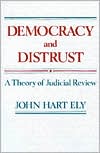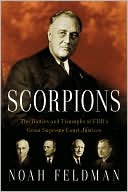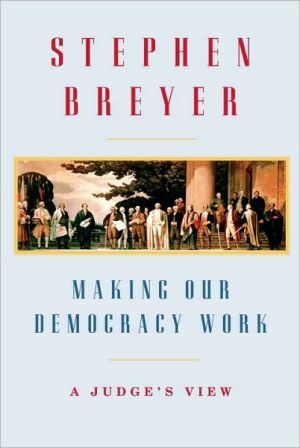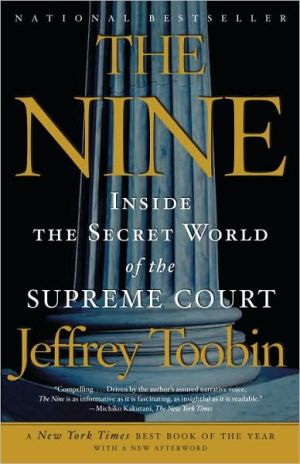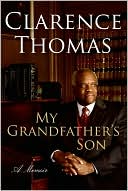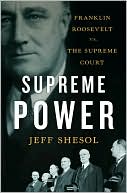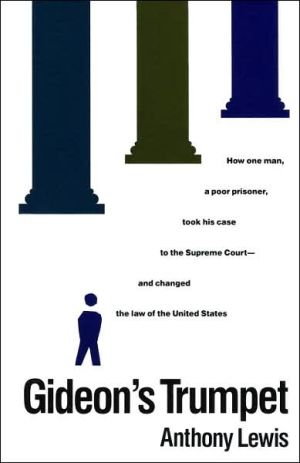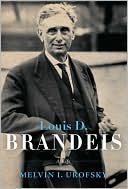Democracy and Distrust: A Theory of Judicial Review
This powerfully argued appraisal of judicial review may change the face of American law. Written for layman and scholar alike, the book addresses one of the most important issues facing Americans today: within what guidelines shall the Supreme Court apply the strictures of the Constitution to the complexities of modern life?\ Until now legal experts have proposed two basic approaches to the Constitution. The first, "interpretivism," maintains that we should stick as closely as possible to...
Search in google:
This powerfully argued appraisal of judicial review may change the face of American law. Written for layman and scholar alike, the book addresses one of the most important issues facing Americans today: within what guidelines shall the Supreme Court apply the strictures of the Constitution to the complexities of modern life?Until now legal experts have proposed two basic approaches to the Constitution. The first, "interpretivism," maintains that we should stick as closely as possible to what is explicit in the document itself. The second, predominant in recent academic theorizing, argues that the courts should be guided by what they see as the fundamental values of American society. Mr. Ely demonstrates that both of these approaches are inherently incomplete and inadequate. Democracy and Distrust sets forth a new and persuasive basis for determining the role of the Supreme Court today.Ely's proposal is centered on the view that the Court should devote itself to assuring majority governance while protecting minority rights. "The Constitution," he writes, "has proceeded from the sensible assumption that an effective majority will not unreasonably threaten its own rights, and has sought to assure that such a majority not systematically treat others less well than it treats itself. It has done so by structuring decision processes at all levels in an attempt to ensure, first, that everyone's interests will be represented when decisions are made, and second, that the application of those decisions will not be manipulated so as to reintroduce in practice the sort of discrimination that is impermissible in theory.Thus, Ely's emphasis is on the procedural side of due process, on the preservation of governmental structure rather than on the recognition of elusive social values. At the same time, his approach is free of interpretivism's rigidity because it is fully responsive to the changing wishes of a popular majority. Consequently, his book will have a profound impact on legal opinion at all levels-from experts in constitutional law, to lawyers with general practices, to concerned citizens watching the bewildering changes in American law. Andrew L. Kaufman - Harvard Law School This is the rare book that lives up to its dust-cover raves.
1. The Allure of Interpretivism2. The Impossibility of a Clause-Bound Interpretivism3. Discovering Fundamental Values4. Policing the Process of Representation: The Court as Referee5. Clearing the Channels of Political Change6. Facilitating the Representation of MinoritiesConclusionNotesIndex
\ Columbia Law SchoolThe single most important contribution to the American theory of judicial review written in this century.\ — Henry P. Monaghan\ \ \ \ \ \ Harvard Law ReviewDemocracy and Distrust will have a wide influence for a long time...Ely writes simply and engaginly with a sense of humor. Yet the reader had better keep his wits about him lest he miss the subtleties. Much of the charm is in the author's candor in facing hard questions. Much of it lies in his good common sense.\ — Archibald Cox\ \ \ \ Harvard Law SchoolThis is the rare book that lives up to its dust-cover raves.\ — Andrew L. Kaufman\ \ \ \ \ \ New York Law JournalThis is the most important book about law in at least fifteen years. It is a great book...In developing his new and exciting theory, Ely spins off important insights like sparks from a generator.\ — Daniel J. Kornstein\ \ \ \ \ \ New York Times Book ReviewWry, witty, and endowed with both dignity and informality. Would that more lawyers (including judges) could write half so well.\ — Telford Taylor\ \ \
